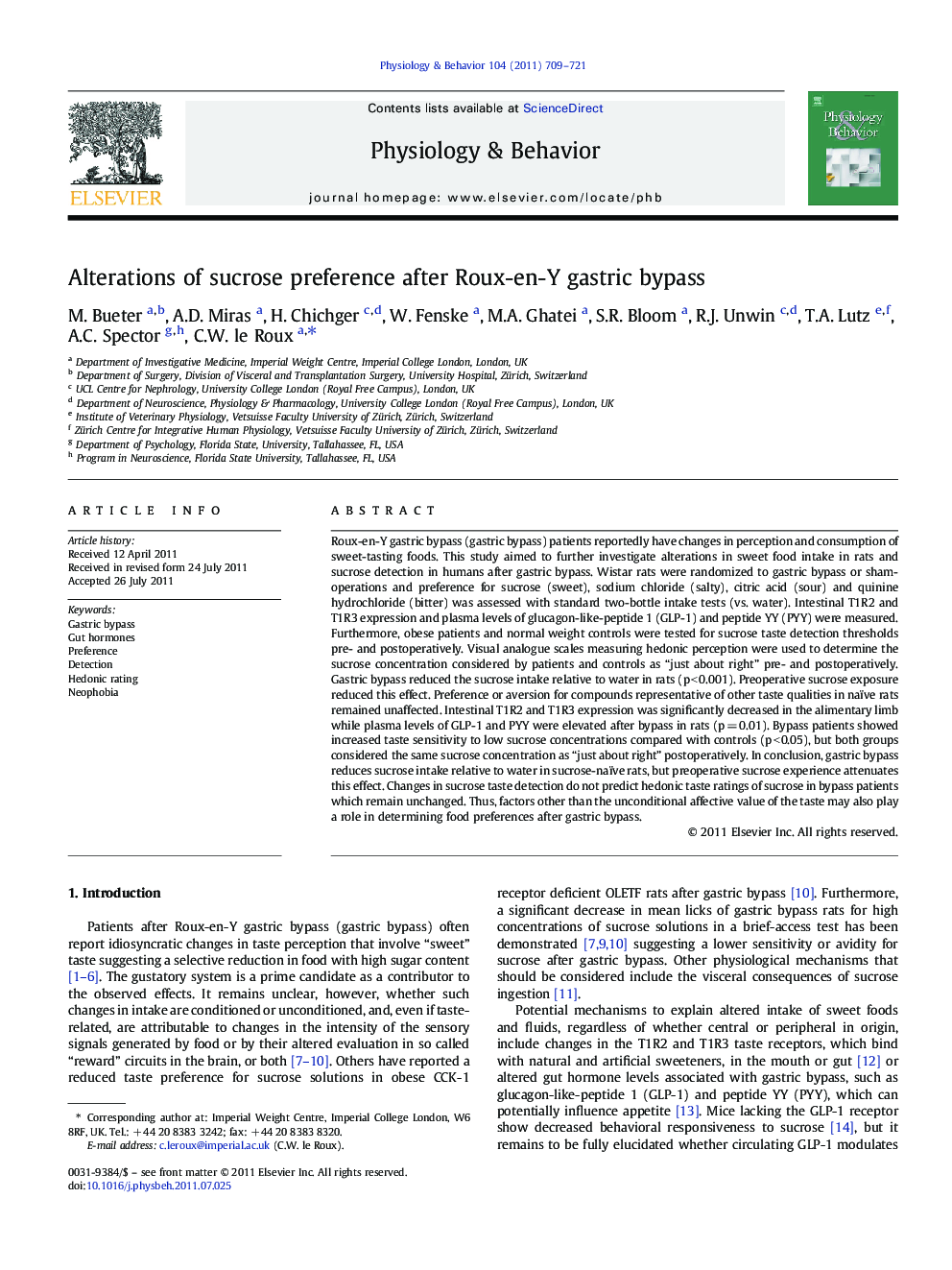| کد مقاله | کد نشریه | سال انتشار | مقاله انگلیسی | نسخه تمام متن |
|---|---|---|---|---|
| 5925206 | 1166344 | 2011 | 13 صفحه PDF | دانلود رایگان |

Roux-en-Y gastric bypass (gastric bypass) patients reportedly have changes in perception and consumption of sweet-tasting foods. This study aimed to further investigate alterations in sweet food intake in rats and sucrose detection in humans after gastric bypass. Wistar rats were randomized to gastric bypass or sham-operations and preference for sucrose (sweet), sodium chloride (salty), citric acid (sour) and quinine hydrochloride (bitter) was assessed with standard two-bottle intake tests (vs. water). Intestinal T1R2 and T1R3 expression and plasma levels of glucagon-like-peptide 1 (GLP-1) and peptide YY (PYY) were measured. Furthermore, obese patients and normal weight controls were tested for sucrose taste detection thresholds pre- and postoperatively. Visual analogue scales measuring hedonic perception were used to determine the sucrose concentration considered by patients and controls as “just about right” pre- and postoperatively. Gastric bypass reduced the sucrose intake relative to water in rats (p < 0.001). Preoperative sucrose exposure reduced this effect. Preference or aversion for compounds representative of other taste qualities in naïve rats remained unaffected. Intestinal T1R2 and T1R3 expression was significantly decreased in the alimentary limb while plasma levels of GLP-1 and PYY were elevated after bypass in rats (p = 0.01). Bypass patients showed increased taste sensitivity to low sucrose concentrations compared with controls (p < 0.05), but both groups considered the same sucrose concentration as “just about right” postoperatively. In conclusion, gastric bypass reduces sucrose intake relative to water in sucrose-naïve rats, but preoperative sucrose experience attenuates this effect. Changes in sucrose taste detection do not predict hedonic taste ratings of sucrose in bypass patients which remain unchanged. Thus, factors other than the unconditional affective value of the taste may also play a role in determining food preferences after gastric bypass.
⺠Gastric bypass may alter behavioral and neural taste functions for sweet taste. ⺠Gastric bypass reduces sucrose intake in sucrose-naïve rats. ⺠Sucrose taste detection does not predict hedonic taste ratings of sucrose. ⺠Other factors than unconditional affective value of taste may entail food preference.
Journal: Physiology & Behavior - Volume 104, Issue 5, 24 October 2011, Pages 709-721